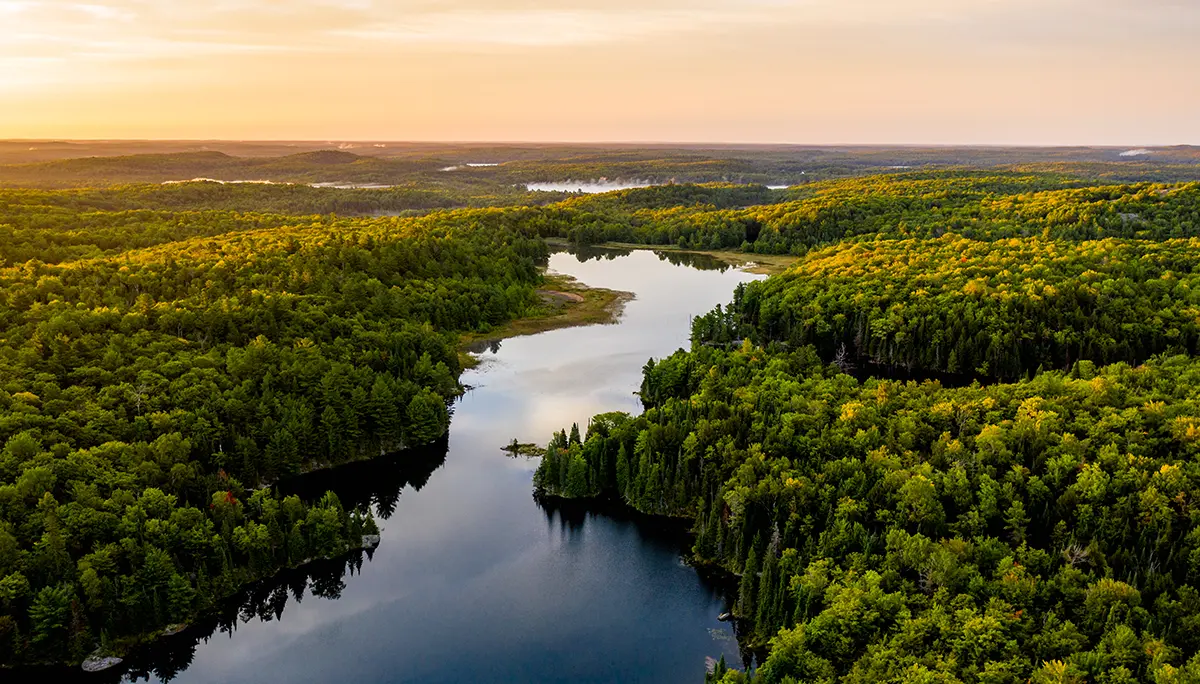World Environment Day 2024 Statement: Addressing the Triple Planetary Crisis of Climate Change, Pollution and Biodiversity Loss in North America
On this World Environment Day 2024, the Commission for Environmental Cooperation (CEC) wants to draw attention to and invite you to reflect on the critical importance of land restoration, desertification and drought resilience. As North America, we celebrate alongside the United Nations Environment Program (UNEP) as the global host of World Environment Day and join UNEP through our robust, meaningful and collaborative efforts to foster public participation and drive action to protect, conserve and restore local, regional and global ecosystems for present and future generations.
World Environment Day 2024 is a moment to focus on the importance of restoring our lands and the functioning of natural ecosystems. Pollution and the unsustainable exploitation of natural resources have led to critical levels of land degradation, biodiversity loss and accelerated climate change. Biodiversity loss results in dangerous impacts to people and to ecosystems. Extreme heat, severe storms, landslides, unprecedented droughts, sea-level rise, coral reef loss, eroded coastlines, species extinctions, uncontrollable wildfires, flooding, crop losses, and food insecurity are but some of the manifestations of our current climate crisis, which is resulting in severe and oftentimes irreversible impacts to our economies, human health and wellbeing.
We must take a whole-of-society approach to aggressive and immediate action tackling the triple planetary crisis of climate change, pollution and biodiversity loss. This includes:
- reducing emissions of greenhouse gases, including carbon, but also even more potent climate pollutants, such as methane, black carbon, tropospheric ozone and HFCs, which can help rapidly slow global warming
- deploying nature-based solutions, bringing nature back into our lives, restoring natural ecosystems, fostering resilience, cooling our planet and making our built environments more livable and more adaptive to climate change
- bringing back biodiversity, supporting existing forests as well as reforestation and afforestation efforts, replenishing our vital freshwater resources, and supporting healthy soils as a foundation for biodiversity as well as human health
Reaching our environmental goals and targets depends on engaging the whole-of- society on this critical mission: that includes the private sector, across every industry that must play its part to aggressively reduce pollution and help slow and reverse climate change; it also depends on including Indigenous Peoples and learning from traditional and ecological knowledge; it needs meaningful youth engagement to unlock innovative creativity and passion to help us tackle and solve the greatest challenge we’ve ever faced. And we need to engage and assist groups that have been historically and systematically marginalized, discriminated and disadvantaged, whether by race, class, gender identity, sexual preference, age, citizenship or resident status, visible or invisible disabilities, or some other aspect of their personal experience and/or identity.
Our power and our opportunity to effectively respond to this planetary crisis lie within our diversity as North Americans, and that diversity will inspire and drive positive environmental change. The CEC proudly works with the Governments of Canada, Mexico and the United States and with communities across North America through projects and initiatives that build resilience, promote climate adaptation and empower communities, while improving ecological and human wellbeing across the region.
In collaboration with our partners, through the CEC we are facilitating knowledge-sharing and exchanges about our shared environment, promoting equity and environmental justice, and identifying solutions to protect and conserve our regional biodiversity.
I encourage everyone to join our upcoming three-day event on North American environmental cooperation: our 31st annual Council Session and JPAC Public Forum, taking place from 24 to 26 June in Wilmington, North Carolina, where we’ll convene North Americans to strengthen environmental justice through community empowerment. Join us in Wilmington, in person or online, and be part of the North American environmental movement!
On this World Environment Day, let’s work together to honor our Earth and its biodiversity. And remember, generation restoration begins with you!
If you would like to know more about CEC initiatives, opportunities and efforts, you can sign up for our newsletter and follow us on social media.

Statement from CEC Executive Director Jorge Daniel Taillant on World Environment Day 2024.
About the CEC
The Commission for Environmental Cooperation (CEC) was established in 1994 by the governments of Canada, Mexico and the United States through the North American Agreement on Environmental Cooperation, a parallel environmental agreement to NAFTA. As of 2020, the CEC is recognized and maintained by the Environmental Cooperation Agreement, in parallel with the new Free Trade Agreement of North America. The CEC brings together a wide range of stakeholders, including the general public, Indigenous people, youth, nongovernmental organizations, academia, and the business sector, to seek solutions to protect North America’s shared environment while supporting sustainable development for the benefit of present and future generations
The CEC is governed and funded equally by the Government of Canada through Environment and Climate Change Canada, the Government of the United States of Mexico through the Secretaría de Medio Ambiente y Recursos Naturales, and the Government of the United States of America through the Environmental Protection Agency.